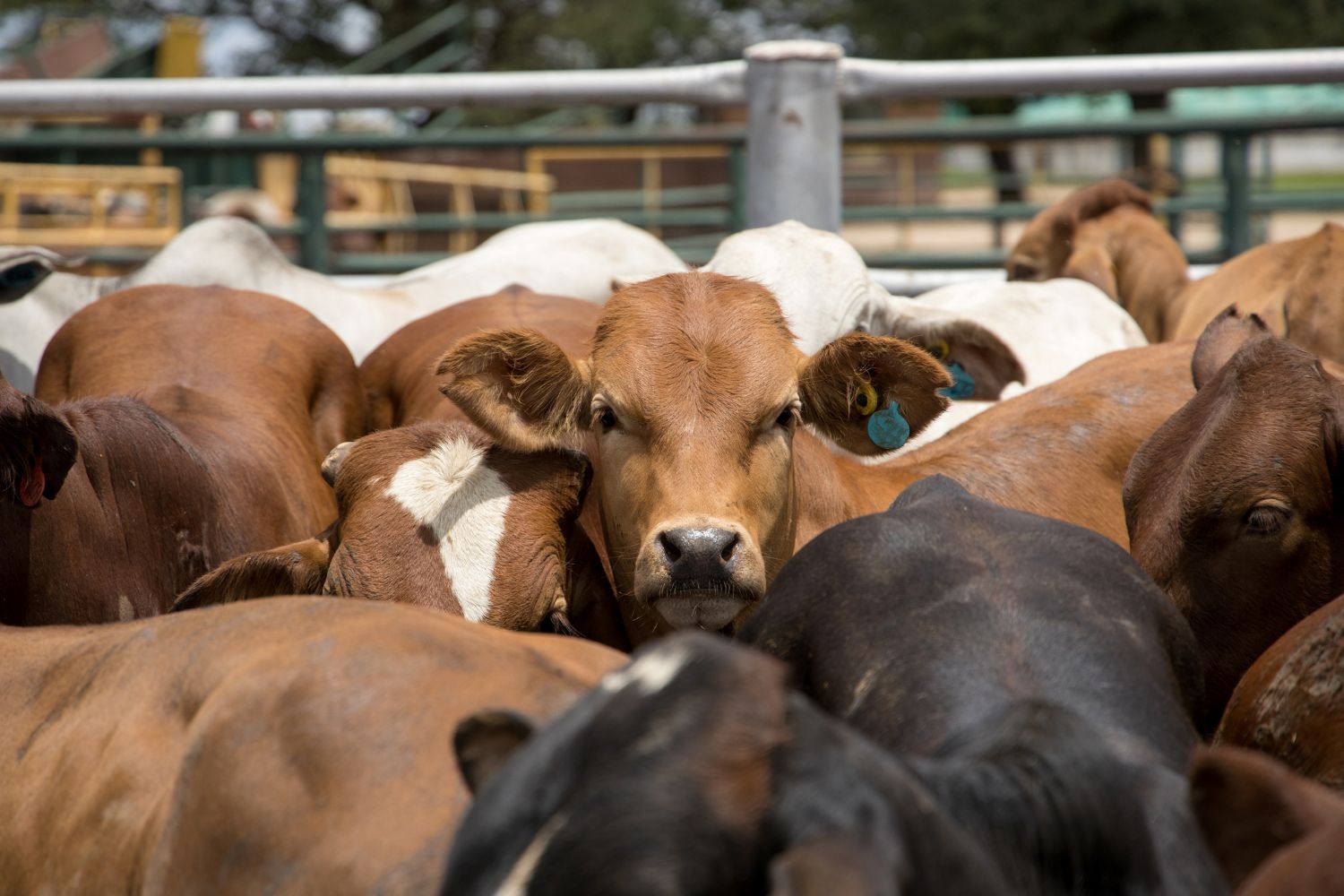Karan Beef says vaccination efforts are contingent on ‘availability from the state’.
The Department of Agriculture expects a R72 million shipment of foot-and-mouth disease (FMD) vaccines to arrive in South Africa by the second week of June.
Dipepeneneng Serage, Deputy Director-General: Agricultural Production, Biosecurity and Natural Resources Management, tells Moneyweb the vaccines are being imported from Botswana “due to South Africa’s limited domestic manufacturing capacity”.
The department has estimated the vaccine requirements for FMD for the 2025/2026 financial year at R1.2 billion, with each dose expected to cost around R100, Agriculture Minister John Steenhuisen said in a statement earlier.
But this amount may have to be increased, says Serage, after Karan Beef, one of South Africa’s largest exporters, confirmed on Monday that a case of foot-and-mouth disease was detected at the Heidelberg facility on Friday 30 May.
“The R1.2 billion estimate was only for FMD protection zones in KwaZulu-Natal, Limpopo and Mpumalanga and we did not anticipate a [recent] case in Gauteng and the outbreak at Karan Beef,” he adds.
Karan Beef notes in a statement that approximately 120 000 cattle are housed at the affected facility. “The company produces an estimated 100 million kilograms of beef annually from this site alone. Vaccination efforts are contingent on “availability from the state”.
“Once initiated, a 14-day vaccination programme will commence, followed by a 14-day observation period.”
ALSO READ: Foot-and-mouth disease outbreak rocks South Africa’s cattle industry
FMD in South Africa
Serage says the department routinely vaccinates animals in areas in South Africa bordering known FMD zones, such as near the Kruger National Park in Mpumalanga as well as the Mfolozi Local Municipality and the Hluhluwe iMfolozi Park, both in KZN.
“From time to time you see cases of FMD spilling over into areas outside the protection zones in areas where there haven’t been vaccinations. If it’s like that, it’s manageable.”
However, the situation has become more complex.
“In KZN, FMD has started flaring up in areas where we’re not supposed to have it and we’ve been battling that since the beginning of this year,” Serage notes.
Potential outbreaks in the Free State and Gauteng, which both border four other provinces, will be particularly problematic.
The detection of FMD at Karan Beef follows an earlier incident in Gauteng on the East Rand on communal farmland. “We’re busy managing that. In a way it’s easier when it’s at a commercial feedlot like Karan because then you can place the entire feedlot under quarantine.”
Serage says South Africa is in the process of ramping up its vaccine manufacturing capacity, but in the meantime the imported vaccines are suitable for South Africa, as the two countries are battling the same strain of FMD. “So, their vaccine works for us.”
ALSO READ: Industry warns of meat price spike and hunger as SA faces supply crisis
Karan’s next steps
Investigations are still underway to determine the source of the outbreak, says Dr Dirk Verwoerd, senior feedlot veterinarian at Karan Beef.
Currently, around 2% of the herd is infected, and no animals are being moved in or out of the Heidelberg feedlot during this period.
Once vaccinations are complete, Karan plans to begin a controlled slaughter-out process under veterinary supervision. No mass culling is planned at this stage.
The group notes that the outbreak has come at the height of weaning season and is expected to cause major disruptions to the national beef supply chain. With feedlot capacity now limited, farmers may be forced to hold on to calves for longer than usual.
Karan Beef has also suspended all exports.
ALSO READ: Ban on Brazil poultry imports adds to SA food insecurity
Despite this setback, the company says its national network of facilities enables it to continue operations on a reduced scale. Unaffected sites will be used to support feeding capacity where possible.
According to the statement, Karan Beef is “working closely with veterinary authorities and following structured protocols to contain the outbreak with urgency and responsibility”.
“While the animals are not severely ill, the control measures are substantial and have a wide impact across the industry,” says Verwoerd.
This article was republished from Moneyweb. Read the original here.
